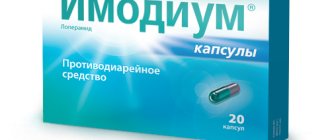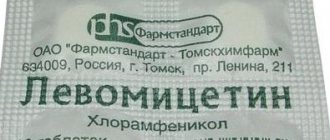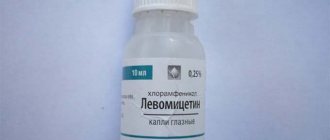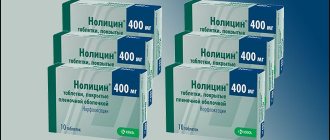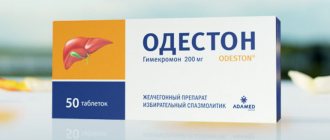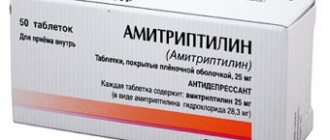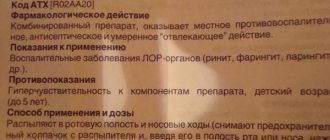Every person experiences diarrhea at least once in their life. Everyone has their own cause of illness. It is better to determine the treatment of the pathological condition with a doctor, since it is very important to take into account the etiology of the origin of loose stools when selecting medications. Some medications are not able to cope with diarrhea if the nature of its occurrence has a different direction that does not coincide with the effect of the drug. Therefore, the speed of recovery and return to normal life depends on properly selected medications and the required dosage. The compatibility of drugs also plays an important role. After all, most drugs belong to the group of antibiotics that disrupt the intestinal microflora. As a rule, treatment of diarrhea is indicated by a whole range of different remedies. Doctors often prescribe Levomycetin for diarrhea.
General characteristics of the drug
This is a broad-spectrum antibiotic. It is able to destroy pathogens of various kinds and stop the proliferation of bacteria. Effectively fights the following types:
- staphylococci;
- chlamydia;
- Neisseria;
- shigella;
- salmonella;
- Klebsiella;
- gram-positive cocci.
It should be noted that Levomycetin for diarrhea will not have a positive effect if viruses, as well as acid-resistant fungi and microorganisms, multiply in the human body. Therefore, before starting to take this medicine, you should clarify the etiology of the origin of diarrhea. The main substances are very quickly eliminated from the human body in a volume of 90%, so bacteria do not have time to develop their resistance to the components. This has a positive effect in treating loose stools.
Video
Levomycetin is an antibiotic antimicrobial agent with a fairly wide spectrum of action. In high concentrations or when applied to bacteria, chloramphenicol often exhibits a unique bactericidal effect. The product is almost instantly and without residue absorbed from the stomach and penetrates into the blood. The maximum concentration is achieved within one to three hours. Penetrates well into blood, tissue, liquids, breast milk, etc. The highest concentration of this drug is observed in the kidneys, which, with long-term use, can have a detrimental effect on health in the future.
Side effects
Levomycetin for diarrhea should be taken only at the prescribed dosage. Violation of the antibiotic treatment regimen can cause the development of side effects. Such negative signs include:
- muscle cramps;
- headache;
- depression;
- increased drowsiness;
- general weakness of the body;
- decreased visual and auditory function;
- nausea, vomiting;
- increased diarrhea;
- dysbacteriosis;
- leukopenia;
- thrombocytopenia;
- erythrocytopenia.
In medical practice, cases of Levomycetin overdose are often encountered. This is due to the desire of patients to speed up the healing effect, on the basis of which the person independently increases the prescribed dose. You should not adjust the treatment regimen at your own discretion in order to exclude a negative reaction from the body.
Treatment regimen
A course of Levomycetin for diarrhea is indicated for up to two weeks. The general condition and reduction in symptoms of diarrhea are observed the very next day after the start of therapy. A complete cure will occur when a person gets rid of the cause, so it is very important to determine it before starting treatment with potent drugs.
The daily dose should not exceed 2 g. At least 6 to 8 hours should pass between taking tablets. For diarrhea, the daily dose is divided into 3 to 4 doses. In severe situations, the doctor can individually increase the maximum daily dose to 4 g. Taken 30 minutes before a meal or 1.5 hours after a meal. The tablet must be swallowed whole without chewing. If consumed on an empty stomach, nausea and stomach pain may occur. Therefore, each patient determines independently when it is better to drink, before or after meals.
Do not forget that Levomycetin is a very strong antibiotic. It is not recommended to drink it due to the banal consumption of certain foods that cause a change in stool consistency. You should clearly understand why diarrhea occurred and whether it needs to be treated with similar drugs. During treatment, parallel prescription of medications that restore intestinal microflora (activated carbon, Smecta, Omeprazole) is required. Only a doctor can select compatible medications, based on test results and the collected medical history. Only a competent approach will allow you to quickly cope with the problem.
Description of the drug
Levomycetin is a broad-spectrum antibiotic, active against a number of microorganisms, disrupting the process of protein synthesis in the microbial cell. The drug is not effective against acid-fast bacteria, anaerobes, and some types of staphylococci.
The active substance of Levomycetin - chloramphenicol - consists of colorless crystals of a bitter taste. The antibiotic was isolated in 1947 from an actinomycete culture, and then they learned to produce it synthetically. Resistance of pathogenic bacteria to the substance develops slowly.
The drug is effectively used in the treatment of dysentery, salmonellosis, enterocolitis, accompanied by the presence of diarrhea. Many strains of bacteria that are resistant to antibiotics of the tetracycline and penicillin groups cannot resist the influence of Levomycetin.
The drug is available in the form of white or yellowish tablets, each containing up to a quarter or half a gram of chloramphenicol.
Composition and effect of the drug
Levomycetin is a broad-spectrum antibacterial agent. It contains chloramphenicol, a substance that actively affects various bacteria and microorganisms that cause dysentery, intestinal, purulent and other infections.
The mechanism of action of chloramphenicol is associated with the destruction of protein synthesis in the bacterial cell at the level of amino acid transfer. Levomycetin is effective even against those bacteria that are resistant to groups of antibiotics such as penicillins, sulfonamides, and tetracyclines. Does not affect acid-fast bacteria, strains of some staphylococci, anaerobes, protozoa and fungi.
To eliminate diarrhea, chloramphenicol tablets of 250 mg and 500 mg are used, which is important to consider in order to avoid an overdose.
How to take Levomycetin for diarrhea
The therapeutic effect of Levomycetin is based on its positive effect on diarrhea, if it is a sign of infection, that is, it appeared after eating poorly washed vegetables, fruits, or water from unknown sources.
How does the instructions for use recommend using Levomycetin against diarrhea? It is advised to take the medicine when particles of blood and purulent mucus are found in the stool. Levomycetin will help if diarrhea is accompanied by an increase in body temperature and weakness. When other medications cannot cope with intestinal pathology, then Levomycetin can do it.
The instructions for use also point out that the product will help only if it is started to be used within the first hours or days of the onset of diarrhea. The active substance is quickly absorbed into the blood, leading to the death of pathogenic microbial cells. After quick treatment, the stool returns to normal, the patient recovers quickly.
Dosage
- For adults, the drug can be taken orally, one tablet every five to six hours. Food intake does not play a special role in the effectiveness of the drug, but it is better to use it either thirty minutes before a meal or an hour after it. For mild forms of stool disorder, a tablet of 0.25 grams is sufficient, in severe cases - 0.5 grams. Increasing the dose is possible, but this requires consultation with the attending physician and monitoring of the patient’s condition on his part. The maximum daily dose of medication should not exceed four grams;
To eliminate diarrhea in children, the dosage of the antibiotic is calculated taking into account the weight and age of the child. If the baby is over three years old and weighs more than twenty kilograms, then it is recommended to use 12.5 milligrams of the drug per kilogram of body weight every six hours or 25 milligrams twice a day with an interval of twelve hours. For a child with a severe form of infectious diarrhea - 75 milligrams per kilogram of weight. And here it is necessary to control the concentration of the active substance in the blood serum, kidney and liver function;
- The main requirement during Levomycetin therapy is to take tablets at regular intervals.
- Tablets of this drug can usually be used in treatment for seven to fourteen days. If the diarrhea stops quickly, then the tablets can be taken in smaller quantities.
How quickly does Levomycetin work?
After taking a tablet of Levomycetin, after just one hour, or at most three, you can feel relief and a decrease in the frequency of diarrhea. The therapeutic effect of the drug continues for four to five hours. The highest concentration of the antibiotic occurs in the tissues of the kidneys and liver, which is why tablets are prohibited for patients with dysfunction of these organs. It is through them that the active substance is removed within twenty-four hours. If the patient has undergone a method of blood purification due to chronic and acute renal failure, hemodialysis, then the elimination process slows down.
Instructions for use
Levomycetin has simple instructions for use, which indicate all the necessary dosages.
Adults are prescribed 1-2 tablets (500 mg or 250 mg) three to four times a day. The total amount of the drug per day should not exceed 2000 mg. For diarrhea caused by severe bacterial infections (dysentery, paratyphoid, typhoid fever), the instructions for the medication allow the use of up to 4000 mg of the drug per day. The description states that you need to drink capsules or tablets whole, half an hour before meals or 1.5-2 hours after meals, with a sufficient amount of water.
Instructions for use for children with diarrhea are different. A child over 6 years of age should take it if prescribed by a doctor. The dosage is significantly reduced, taking into account the weight and age of the child. According to the instructions, children from six to eight years old are prescribed Levomycetin at the rate of 15-20 mg per 1 kg of body weight; over 8 years old - 20-30 mg per 1 kg of child weight.
For elderly people or people with kidney and liver problems, the dosage of this strong antibiotic is adjusted individually. Special instructions in the instructions state that some patients, while taking it, need to monitor their kidney function and monitor their blood composition, including leukocyte counts.
The course of treatment for intestinal infection with chloramphenicol is prescribed by a specialist; its duration depends on the type of pathogen and the severity of the disease. The usual course lasts from 5 to 7-10 days, in some cases treatment is extended to 14 days, but no more. Repeated courses of treatment after a short period of time (less than 1-2 months) are extremely undesirable.
It is not recommended to take Levomycetin with severe diarrhea simultaneously with other antibiotics; they weaken each other’s effect. You should not drink alcoholic beverages during the course, this is fraught with negative conditions:
- headache;
- decreased blood pressure;
- abdominal pain;
- redness of the face and increased heart rate.
Contraindications and side effects
Levomycetin will not help with diarrhea for all patients. The official instructions for the drug indicate a number of contraindications:
- hypersensitivity to the main component of the drug;
- liver or kidney failure;
- skin diseases such as psoriasis, eczema;
- inhibition of bone marrow hematopoiesis;
- acute porphyria;
- deficiency of the enzyme phosphate dehydrogenase;
- period of pregnancy and lactation;
- age up to three years.
An overdose of the drug is fraught with the following manifestations:
- nausea and vomiting,
- depression,
- headache,
- dermatitis.
The risk of side effects will increase if sulfonamides and cytostatics that inhibit the process of hematopoiesis are taken together with Levomycetin.
It is forbidden to simultaneously use Levomycetin tablets with penicillins and cephalosporins, as the effect of both will be weakened.
Long-term treatment with the drug can cause complications from the hematopoietic system. And taking alcoholic beverages with medication develops headaches, abdominal cramps, facial flushing, decreased blood pressure, rapid heartbeat, and shortness of breath.
Levomycetin tablets will help cope with diarrhea in adults and children caused by intestinal infection if they are taken on the first day of diarrhea. In mild cases, recovery will occur within three hours; in severe cases, it will take more than two days.
Stool disorder is a common occurrence, characterized by thinning of stool and increased frequency of bowel movements. When diarrhea is prolonged, and diet or usual remedies do not help cope with the disorder, the patient begins to look for a more effective way to stop the unpleasant process. Taking antibacterial drugs is relevant if the disorder is caused by food intoxication or intestinal infection. One of the list of effective medications for diarrhea is Levomycetin, which allows you to eliminate the symptom in a short time.
Indications
The medication is available in the form of white tablets with a yellowish tint. Levomycetin is prescribed for acute intestinal infections. For selected pathologies that cause diarrhea, an antibiotic is necessary. Diseases for which the drug is taken:
- Salmonellosis;
- Dysentery;
- Typhoid fever and others.
The drug is inactive against some bacteria. Therefore, it is important to establish the exact cause of the pathology before taking the medication.
An effective remedy for food poisoning and indigestion if:
- The frequency of stool exceeds 10-15 times, and the patient’s condition does not improve after taking alternative medications.
- The patient notices bloody streaks or pus in liquid stool. This case involves treatment with antibacterial agents.
- Diarrhea is infectious, but it is not affected by alternative antibacterial agents. The patient must undergo a stool test to determine the pathogen.
- In addition to intestinal upset, there is an elevated body temperature.
- The patient has an individual intolerance or an allergic reaction to other antibacterial drugs.
Mechanism of action
Levomycetin is a broad-spectrum antibiotic that effectively inhibits the activity of a number of bacteria. The mechanism of its action is expressed in the penetration of microorganisms into cells. Subsequently, the drug blocks the process of protein production carried out by bacteria. Having lost the source of life, the uninvited guests begin to rapidly die.
After eliminating the intestinal infection, if it was the root cause of diarrhea, the accompanying symptoms recede and stool returns to normal.
In other words, the action of Levomycetin is not aimed at eliminating diarrhea itself. This drug is a medicine that acts directly on the root cause, and not on its effect. In cases where diarrhea is caused by pathogenic fungi, viruses, poisoning and other non-infectious factors, the drug will be ineffective.
Directions for use and dosage
The attending physician can prescribe antibacterial agents. The doctor sets the dosage and duration of treatment with Levomycetin depending on the severity of the disease. When the patient begins to use the medicine, the condition improves noticeably after a day. But ending therapy is contraindicated - you need to take the full course of the drug prescribed by the doctor in order to completely destroy the bacteria. On average, the course of treatment lasts from a week to ten days.
Tablets should be taken half an hour before meals or an hour after meals. For better absorption, it is permissible to bite the tablet. The taste of the drug is very bitter; you need to take the tablet with a large amount of water. The tablets are taken at the same time interval.
In the box with the medicine there will be instructions for use that must be followed, but the medicine must be taken according to the doctor's instructions.
Rules for use in adults
If an adult has diarrhea, it is recommended to take one tablet every 5 hours. The total daily dosage in adults should not exceed 4 grams.
A mild form of diarrhea involves taking a tablet 4 times a day.
For severe diarrhea caused by infection, 2-4 tablets are prescribed, 3-4 times a day.
Application of Levomycetin
Levomycetin can be used for diarrhea only with a doctor's prescription. Otherwise, these anti-diarrhea pills will only aggravate the situation and cause additional harm to the patient. Instructions for use should be known to people who plan to use this drug.
On average, the entire course takes 1-2 weeks. Improvement in well-being occurs the very next day after a person starts drinking Levomycetin. However, complete recovery means not only getting rid of symptoms such as diarrhea, but also eliminating the main root cause that caused this disease.
Most often, the amount of medication taken per day does not exceed 2 g for an adult, the break between doses is 6-8 hours (3-4 doses per day). In severe cases, the dose is doubled (up to 4 g).
It should be used half an hour before eating, or an hour and a half after, swallowing the tablet whole. If you take the medicine on an empty stomach, you may experience nausea and abdominal pain.
In the box with the drug, instructions for use are always included; you can read the full composition, the entire list of contraindications and possible complications. In addition, a number of preventive procedures must be followed. Every human body is individual, and everyone may have a different reaction to taking strong antibacterial drugs. When prescribing chloramphenicol for diarrhea, the doctor will definitely give suitable recommendations for a more comfortable course of treatment. However, there are a number of tips that have repeatedly helped with diarrhea in adult patients:
- Never take this medicine if you know that loose stools are caused by everyday things (spoiled food, alcohol, etc.). This medication is a very strong antibiotic;
- Also, you should not engage in other methods of self-medication; parallel therapy can only be carried out with the permission of the attending physician.
- Using Levomycetin for diarrhea, you need to take a course of additional preventive medications, they will help maintain normal microflora.
Every patient wants to use a drug with excellent reviews, high efficiency and an affordable price. For diarrhea, Levomycetin is just such a medicine, however, it has its own strict characteristics, and it is not recommended to use it without consulting a doctor. A visit to the doctor will take much less time than treatment of possible complications if the patient takes the wrong medicine or violates the dosage. Sometimes a condition such as diarrhea can be a symptom of a serious illness.
ponosnevopros.ru
Contraindications
The antibiotic has a strong effect, there are contraindications. Restrictions on use:
- Pregnancy and breastfeeding period. If therapy with the drug is necessary, you should stop feeding for the period of treatment.
- Renal dysfunction.
- Porphyrin disease.
- Children's age up to 4 months.
- Diabetes.
- Skin diseases: psoriasis, eczema.
- Allergy and individual intolerance to the components of the drug.
Do not take for sore throat and acute respiratory viral diseases.
In this case, it is recommended to stop using the medication or replace it with another drug after consulting with your doctor.
The use of the medication is not recommended for stool disorders caused by allergies or the use of laxative products. Treatment with an antibiotic is carried out in case of infection in the digestive tract.
Interaction with other drugs
"Levomycetin Actitab" is sold only with a doctor's prescription. Self-medication with drugs is unacceptable; it can lead to dire consequences, including death.
You should be careful when using antibiotics together with other medications. The simultaneous use of phenobarbital and chloramphenicol slows down the elimination of the antibiotic. You should not combine chloramphenicol and drugs such as erythromycin - the effectiveness of action is significantly reduced.
It is prohibited to use it together with alcohol-containing drugs, be it an alcoholic drink or a medicine based on ethyl alcohol. A common result of this combination is severe headaches, red skin, cramps and painful sensations in the epigastrium. Taking antibiotics and alcohol together leads to pressure drops, shortness of breath, and increased heart rate.
For every negative review about Levomycetin Actitab, there are a dozen positive ones - a sufficient indicator of the fact that the medicine is effective in treating mild intestinal disorders if you carefully follow the recommendations. A single use of the drug is enough to “strengthen” the intestines.
Along with the elimination of diarrhea, people note a significant decrease in pain in the stomach and a decrease in discomfort in the abdomen. Many doctors and pharmacists recommend purchasing this medicine for your home medicine cabinet. This advice is especially relevant for the warm season, at the height of the season of vegetables, berries, and fruits.
The use of Levomycetin Actitab is only possible to eliminate uncomplicated diarrhea. If a day of use does not bring improvement, it is recommended to consult a doctor to find out the reasons that caused the intestinal dysfunction. More detailed diagnostics and the prescription of other medications will likely be required. It is important to drink more fluids to avoid dehydration.
Before using any medicine, you must consult with your doctor and carefully study the instructions for use!
By-effect
Taking the medication, even in accordance with the prescribed dosage, is often accompanied by the appearance of symptoms. The patient may feel dizzy and have a headache, and vision and hearing may deteriorate. Levomycetin causes pathological processes in the circulatory system, for example, thrombocytopenia, leukopenia. The patient may feel discomfort in the abdomen - bloating, flatulence.
Patients prone to allergies experience skin rashes or other reactions. In difficult cases, swelling occurs, which poses a danger to human health and life.
Side effects disappear after stopping treatment.
Overdose
Exceeding the recommended dose is fraught with various complications. The patient's vision and hearing may deteriorate, dizziness and headaches may occur. Symptoms of overdose are general weakness, nausea, vomiting, and convulsions.
Often patients, in pursuit of a quick recovery, make an independent decision - to increase the dose of the drug. When taking antibiotics, it is forbidden to change the dosage yourself. For diarrhea, the doctor prescribes the volume required by the patient. Exceeding it worsens the condition and can cause severe stool upset.
Precautionary measures
To protect yourself from adverse reactions, you must follow the rules for taking the medication:
- Consultation with a doctor before treatment for diarrhea with an antibiotic is mandatory. Especially when it comes to treating an infant.
- It is not allowed to take the medicine for a one-time intestinal disorder, in the absence of other signs of intoxication.
- Levomycetin is an antibiotic that affects the intestinal microflora, which leads to dysbacteriosis. Already at the treatment stage, you need to take probiotics to restore the intestinal microflora. It is recommended to drink Linex, Bifidumbacterin, Bifiform. These probiotics work well with antibiotic therapy.
- Diarrhea is not always a sign of infection. The symptom may indicate chronic diseases of the gastrointestinal tract. When planning to start treatment with antibiotics, you need to seek help from a doctor, undergo an examination and identify the cause of diarrhea.
It is forbidden to take tablets when consuming alcohol-containing products. Alcohol reduces the effectiveness of the medication. There will be no positive result if you combine alcoholic beverages and antibiotic therapy.
Analogs
Infectious diarrhea can be overcome by drugs similar to Levomycetin or antibiotic substitutes:
- Levomycetin Actitab is a medicine produced in the form of tablets. The main substance is chloramphenicol, as in standard Levomycetin. It differs from an antibiotic in the composition of its excipients.
- Levomycetin Darnitsa is a broad-spectrum antibiotic with the active substance chloramphenicol.
- Dexamethasone is a synthetic drug that regulates protein and carbohydrate metabolism. It can be prescribed instead of Levomycetin for typhoid fever and diphtheria.
The choice of antibacterial agent depends on the causative agent of the disease. The doctor must prescribe the medicine based on laboratory studies of human biological material.
Levomycetin is a strong antibiotic that helps cope with infections in adults and children. It is forbidden to take it for any diarrhea, since the medicine will not only not help cope with a banal stool disorder, but will also intensify diarrhea. Before taking it, you need to identify the cause using laboratory testing. And after making sure that the symptom is caused by bacteria, start antibiotic therapy without violating the dosage.
